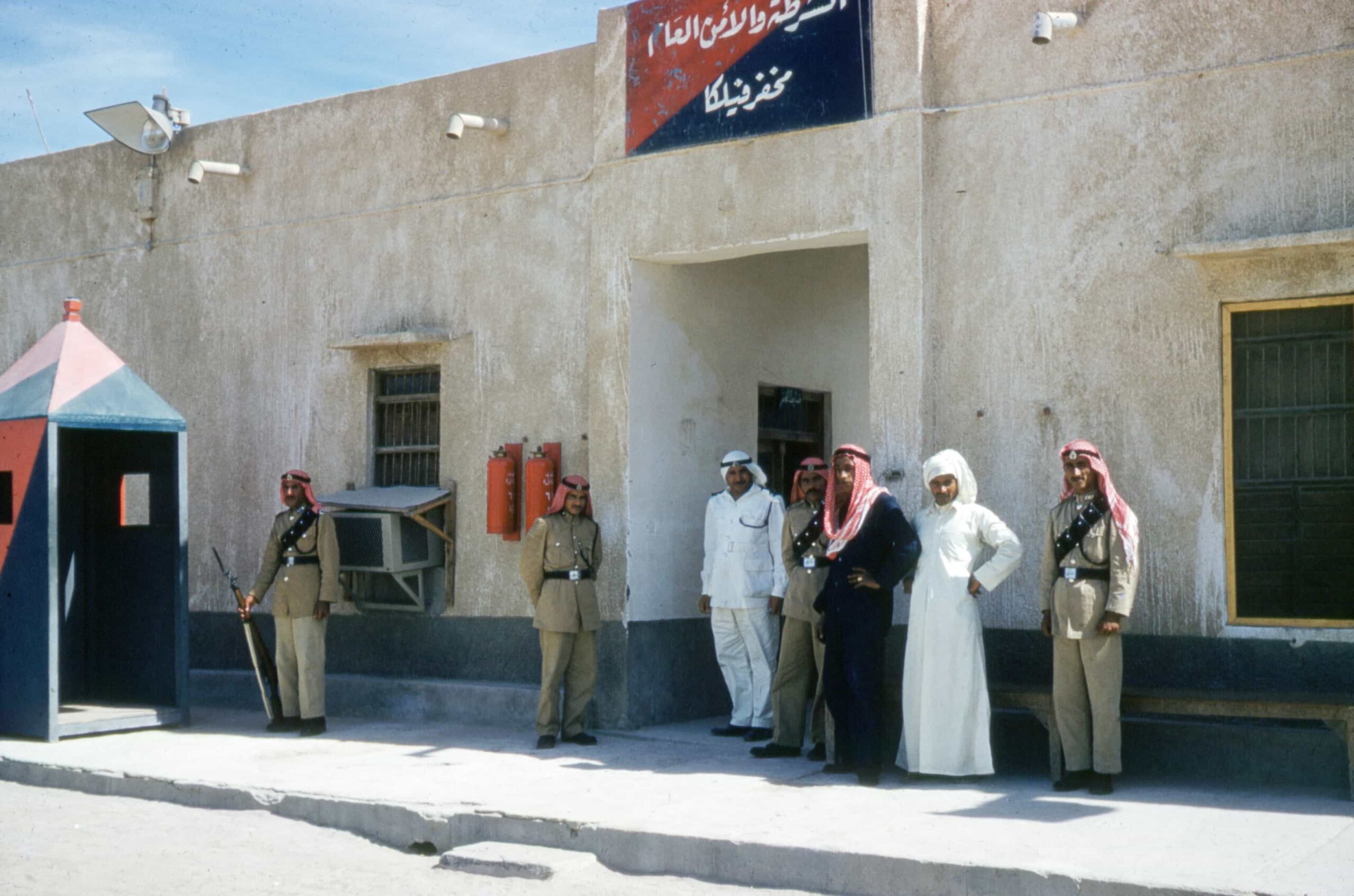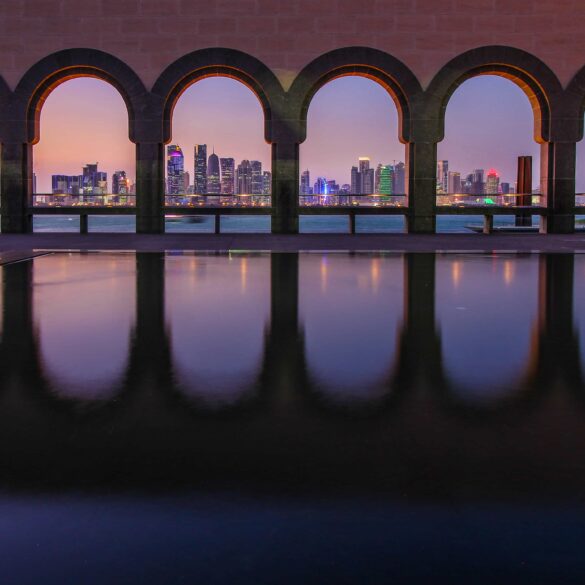Living and Working in Kuwait: A Complete Expat Guide
When I first stepped off the plane in Kuwait City back in 2019, the desert heat hit me like—well, honestly, nothing I’d experienced before. Having worked in this region for over five years now, I’ve learned that Kuwait offers something pretty unique for expats willing to embrace both its challenges and incredible opportunities.
Let me be completely honest with you: Kuwait isn’t for everyone. But for those who get it right, it can be absolutely transformative both personally and professionally. The country sits at this fascinating crossroads between traditional Arabian culture and modern international business, creating opportunities that frankly don’t exist anywhere else in the region.
Kuwait at a Glance
Kuwait is roughly the size of New Jersey but punches way above its weight economically. With a population of about 4.3 million people, approximately 70% are expatriates—meaning you’ll be joining a massive, diverse international community that’s been thriving here for decades.
Why Kuwait Matters for Your Career
Here’s what really struck me during my early days here: Kuwait’s economy is incredibly stable, thanks to its massive oil reserves, but it’s also actively diversifying. The government’s “New Kuwait 2035” vision1 is creating opportunities across finance, technology, healthcare, and infrastructure that simply didn’t exist a decade ago.
What I’ve consistently found is that expats who succeed here understand one crucial thing—this isn’t just about earning a tax-free salary (though that’s certainly nice). It’s about positioning yourself in a market that’s rapidly evolving and offers genuine career acceleration opportunities.
The expat community here is fascinating—you’ll meet people from literally every corner of the globe. Indians, Filipinos, Egyptians, Americans, Europeans, and countless other nationalities all call Kuwait home. This creates this incredible cultural melting pot that I honestly wasn’t expecting when I first arrived.
Setting Realistic Expectations
Let me address the elephant in the room: Kuwait can be challenging. The summer heat is genuinely intense—we’re talking 45-50°C (113-122°F) regularly. The bureaucracy can be frustrating if you’re coming from more streamlined Western systems. And yes, it’s a conservative Islamic country, which means certain lifestyle adjustments are necessary.
But here’s the thing that took me a while to appreciate: these challenges are actually manageable once you understand the local systems. More importantly, the benefits—both financial and professional—often far outweigh the initial adjustment period.
Living in Kuwait: Housing, Culture, and Daily Life
Finding the right place to live in Kuwait—honestly, this was my biggest stress point initially. The housing market here operates quite differently from what most Western expats expect, but once you understand the system, it becomes much more manageable.
Housing Options and Neighborhoods
Most expats end up in one of several key areas, each with its own personality and price point. Salmiya and Hawalli are incredibly popular with younger professionals—loads of restaurants, cafes, and that buzzing international atmosphere. If you’re looking for something more upscale, Salwa and Bayan offer beautiful villas and compounds, though you’ll definitely pay premium prices.
| Area | Type | Monthly Rent (KD) | Best For |
|---|---|---|---|
| Salmiya | Apartments | 200-400 | Young professionals |
| Salwa | Villas | 600-1200 | Families |
| Fintas | Compounds | 400-800 | Expat families |
What I wish someone had told me earlier: most landlords expect the full year’s rent upfront, plus a security deposit. This can be a massive shock if you’re not prepared financially. However, many employers will help with housing allowances or provide accommodation during your first few months.
Embracing Kuwaiti Culture
The cultural aspect—this is where Kuwait really shines, in my opinion. Kuwaitis are genuinely hospitable people. I remember my first Ramadan here, when my Kuwaiti colleague invited me to iftar at his family’s house. The warmth and generosity were incredible, and it completely changed my perspective on living here.
Cultural Adaptation Tips
- Learn basic Arabic greetings—locals absolutely appreciate the effort
- Dress conservatively, especially in traditional areas
- Respect prayer times and Islamic holidays
- Friday is the holy day, so expect different weekend rhythms
During Ramadan, the entire pace of life changes—and honestly, I’ve grown to love this rhythm. Work hours shift, social gatherings happen later, and there’s this incredible sense of community and reflection that you don’t experience in many other cultures.
Cost of Living Reality Check
Let’s talk money, because this is where Kuwait gets really interesting. No income tax means your salary goes much further than you might initially calculate. But—and this is important—imported goods can be expensive, especially Western food brands and clothing.
A typical monthly budget for a single professional might look something like this: housing (300-500 KD), food (150-250 KD), transportation (50-100 KD), and entertainment (100-200 KD). These are rough estimates, obviously, and your lifestyle choices will dramatically affect these numbers.
What consistently surprises new expats is how affordable certain things are—domestic help, dining out at local restaurants, and fuel costs are incredibly reasonable. On the flip side, alcohol is prohibited, which actually becomes a non-issue for most people after a few months.
Building Your Social Network
The expat community here is tight-knit, which makes social integration much easier than I initially expected. There are Facebook groups for virtually every nationality, hobby, and interest group you can imagine. Sports clubs, book clubs, hiking groups—honestly, the social opportunities are endless if you’re proactive about seeking them out.
My advice? Don’t just stick with your own nationality. Some of my closest friends here are from completely different cultural backgrounds, and these relationships have enriched my experience in ways I never anticipated.

Working in Kuwait: Job Market and Career Opportunities
The job market in Kuwait is unlike anywhere else I’ve worked—and I’ve been around the block a few times. What makes it unique is this combination of traditional business practices with rapidly modernizing industries, creating opportunities that frankly don’t exist in many other markets.
Understanding the Employment Landscape
Here’s what I’ve learned about Kuwait’s job market: it’s heavily influenced by government policies around “Kuwaitization”2—the push to employ more Kuwaiti nationals. This doesn’t mean fewer opportunities for expats, but rather that you need to offer genuine value and specialized skills that complement local talent.
The sectors with the strongest expat demand include:
- Oil and gas (obviously, given Kuwait’s petroleum wealth)
- Banking and finance (Kuwait is a regional financial hub)
- Healthcare (massive investment in medical infrastructure)
- Engineering and construction (infrastructure projects everywhere)
- Information technology (digital transformation initiatives)
- Education (international schools and training programs)
Salary Expectations and Benefits
Let’s be honest about compensation—this is probably why you’re considering Kuwait in the first place. The tax-free salary structure means you can potentially save 30-40% more than equivalent positions in your home country. But don’t just focus on the base salary; the benefits package is where Kuwait employers really compete.
| Profession | Entry Level (KD) | Mid-Level (KD) | Senior Level (KD) |
|---|---|---|---|
| Engineer | 600-800 | 1000-1500 | 2000-3000 |
| Teacher | 400-600 | 700-1000 | 1200-1800 |
| Finance Manager | 800-1200 | 1500-2500 | 3000-5000 |
The benefits typically include housing allowance, annual flights home, health insurance, and often education allowances for children. What I found particularly valuable was the mandatory annual leave—30 days minimum, which genuinely allows you to maintain connections with family and friends back home.
Workplace Culture and Etiquette
Kuwait’s workplace culture is… well, it’s interesting. There’s this blend of traditional Arabian business practices with international corporate standards. Meetings might start with extended pleasantries and relationship-building, which initially frustrated me coming from a more direct Western approach.
Essential Workplace Tips
- Build relationships first, then discuss business
- Respect hierarchy—it’s more formal than many Western workplaces
- Friday-Saturday weekends mean different project timelines
- Prayer times create natural work rhythm breaks
What I’ve learned to appreciate is that this relationship-focused approach actually creates stronger business partnerships long-term. Decision-making might seem slower initially, but once trust is established, projects move incredibly efficiently.
Legal Requirements and Visa Process
The visa process—okay, this can be genuinely frustrating if you’re not prepared. You’ll need a job offer before you can apply for a work visa, and your employer typically handles most of the paperwork. The key documents include degree certificates (properly attested), medical examinations, and police clearance certificates from your home country.
One thing that caught me off guard: degree attestation requirements can take weeks or even months depending on your home country’s system. Start this process early, seriously. I’ve seen great job offers fall through because candidates underestimated the documentation timeline.
Your residency permit (called an “Iqama”) ties you to your employer, which means changing jobs requires careful planning. However, the recent labor law changes3 have made job mobility somewhat easier for expats, though it’s still more restrictive than what many Western professionals are accustomed to.
Career Development Opportunities
Here’s where Kuwait really surprised me: the career development opportunities are actually exceptional if you position yourself correctly. The government’s diversification initiatives mean new industries are constantly emerging, creating leadership opportunities that might take decades to achieve in more established markets.
I’ve watched colleagues transition from technical roles into senior management positions within 3-5 years, primarily because they understood the local market dynamics and built strong relationships with both Kuwaiti and international partners.
Practical Considerations and Success Tips
After five years of living and working in Kuwait, I’ve learned that success here isn’t just about professional competence—it’s about understanding and adapting to a completely different way of life. Let me share the practical insights that took me far too long to figure out on my own.
Healthcare and Education Systems
Kuwait’s healthcare system is actually quite impressive, especially for a country of its size. The public healthcare is free for residents, but most expats prefer private healthcare for shorter wait times and English-speaking staff. The private hospitals here—Al-Sabah, Dar Al Shifa, Kuwait Hospital—offer excellent care with modern facilities.
For families, education is obviously a major consideration. The international school system is robust, with British, American, French, and Indian curriculum options. However, be prepared for waiting lists and significant fees. Many employers include education allowances in their packages, which honestly makes a huge difference financially.
Transportation and Getting Around
Public transportation in Kuwait is… well, let’s just say it’s improving. The new metro system is under construction, but for now, most expats rely on cars. Getting a driving license as an expat involves some bureaucracy, but it’s definitely manageable with the right documentation.
Transportation Options
- Personal car (most common for expats)
- Taxi services and ride-sharing apps
- Company transportation (some employers provide)
- Walking/cycling (limited due to climate)
What I wish I’d known earlier: traffic in Kuwait City can be absolutely insane during peak hours. Plan your commute accordingly, or better yet, try to find housing close to your workplace. The time savings alone make it worthwhile.
Financial Planning and Banking
Opening a bank account in Kuwait requires your residency permit, salary certificate, and sometimes a letter from your employer. The banking system is modern and efficient, with most major banks offering English-language services and online banking platforms.
My biggest financial advice: take advantage of the tax-free income to build serious savings. Many expats get caught up in the lifestyle inflation that comes with higher disposable income, but Kuwait offers a genuine opportunity to accelerate your financial goals if you’re disciplined about it.
Seasonal Considerations and Climate
The climate in Kuwait is honestly the biggest adjustment for most expats. Summer temperatures regularly exceed 45°C (113°F), which means outdoor activities are basically impossible from June through September. But here’s the thing—you adapt. Air conditioning is everywhere, and you learn to plan activities around the cooler months.
Winter in Kuwait is actually lovely—mild temperatures, occasional rain, and perfect weather for outdoor activities. This is when the social calendar really picks up, with outdoor events, camping trips, and cultural festivals.
Keys to Long-term Success
Based on my experience and watching other expats navigate Kuwait successfully, here are the factors that really matter:
- Embrace the culture rather than resisting it
- Build genuine relationships with both locals and expats
- Maintain connections with home while avoiding constant comparisons
- Focus on professional development and skill building
- Plan for life after Kuwait—this is typically a stepping stone, not a permanent destination
Looking back, my time in Kuwait has been professionally and personally transformative. The combination of career opportunities, cultural exposure, and financial benefits created possibilities I simply wouldn’t have had elsewhere. Is it challenging? Absolutely. But for those willing to embrace the experience fully, it’s genuinely rewarding.
References



